This article was medically reviewed by Sarah Gehrke, RN, MS. Sarah Gehrke is a Registered Nurse and Licensed Massage Therapist in Texas. Sarah has over 10 years of experience teaching and practicing phlebotomy and intravenous (IV) therapy using physical, psychological, and emotional support. She received her Massage Therapist License from the Amarillo Massage Therapy Institute in 2008 and a M.S. in Nursing from the University of Phoenix in 2013.
This article has been viewed 14,122 times.
Pressure in the ears can be uncomfortable, even painful, and has a variety of causes. Air pressure changes when flying or diving underwater can impact your ears, as can a cold or ear infection. Start with some quick and easy methods to relieve the pressure, like swallowing, yawning, or chewing gum. “Popping” your ears by preventing air from blowing out of your nose and mouth also helps. If these methods don’t work, seek over-the-counter or prescription medical treatments.
Steps
Opening Your Ear Tubes
-
1Swallow or yawn. These motions cause the tube between the middle ear and the nose and throat (the Eustachian tube) to open up. Doing this can relieve the pressure in your ears, but you may have to try several times.[1]
-
2Chew on gum or suck hard candies. Both of these actions encourage more swallowing, helping to relieve the pressure. Chewing gum or sucking on candy is a great idea if you need to relieve pressure over a period of time. For instance, try chewing gum when descending in a plane, or sucking on candy if you’ve got a cold.[2]
- If you still feel pressure after landing in a plane, keep chewing gum or sucking on candy. This will help your ears return to normal pressure more quickly.
Advertisement -
3Feed babies or give them a pacifier to relieve ear pressure. Babies probably don’t know how to swallow or yawn at will, and they can’t safely be given gum or hard candy. Instead, feed them from a bottle or give them a pacifier. This will encourage sucking, and help relieve ear pressure.[3]
- Make sure to give a baby a bottle or pacifier when taking off or landing in a plane, or any other time you expect changes in air pressure.
Blowing to Relieve Pressure
-
1Take a deep breath. Inhale a large gulp of air through your mouth. At the same time, pinch your nostrils shut. Do not exhale yet.[4]
-
2Try to blow air out of your pinched nose. You won’t really be able to blow the air out, since your nose is pinched shut. Don’t let the air out of your mouth, either.[5]
-
3Listen for a pop. You feel some pressure build up, since you’ll try to blow the air out but it won’t have anywhere to go. If this method works, you’ll hear a slight “pop,” which means that your ears have unblocked. This should relieve the pressure.[6]
- If you are landing on a plane, you may have to try this several times to relieve the pressure.
Trying Medical Treatments
-
1Take some over-the-counter nasal medications. OTC nasal decongestants can be very helpful if the pressure in your ears isn’t relieved by the basic methods. This is because the nasal and ear canals are connected. Follow the directions on the package, and take only as directed (usually for no more than a week).[7]
-
2See a doctor for antibiotics. Ear infections and other issues can cause pressure to build up in your ears. See a doctor if the pressure in your ears lingers or is accompanied by fever or significant pain. If an infection is the cause, the doctor can prescribe antibiotics to eliminate it.[8]
- OTC pain relievers can also help with the discomfort that accompanies ear infections.
- A warm compress can also help relieve ear pain. Just take a warm, damp cloth and let it sit on your outer ear for a few minutes.
-
3Talk to a doctor about alternative treatments. If the pressure in your ear persists or keeps coming back, you may need to seek more serious solutions. In some cases, for instance, a doctor may prescribe nasal steroids. In extreme cases, ventilation tubes may be surgically implanted to prevent the pressure problem.[9]
References
- ↑ https://medlineplus.gov/ency/article/001064.htm
- ↑ http://www.entnet.org/content/ears-and-altitude
- ↑ http://www.entnet.org/content/ears-and-altitude
- ↑ https://health.clevelandclinic.org/how-to-pop-your-ears/
- ↑ https://my.clevelandclinic.org/health/diseases/17929-airplane-ear
- ↑ http://www.entnet.org/content/ears-and-altitude
- ↑ https://my.clevelandclinic.org/health/diseases/17929-airplane-ear
- ↑ http://entcolumbia.org/staywell/document.php?id=48509
- ↑ http://www.entnet.org/content/ears-and-altitude

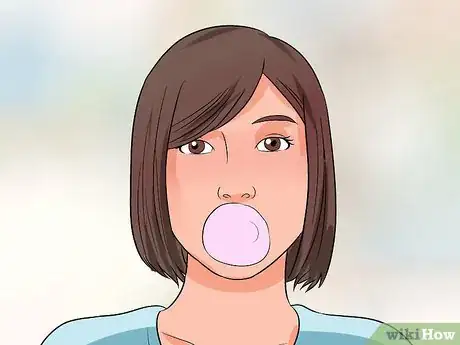


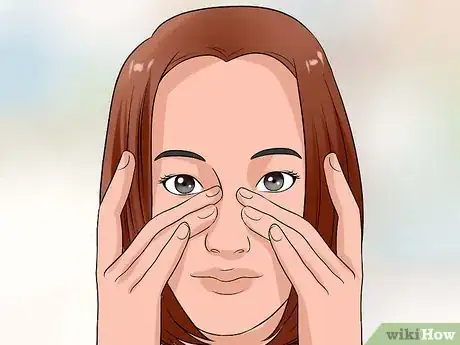
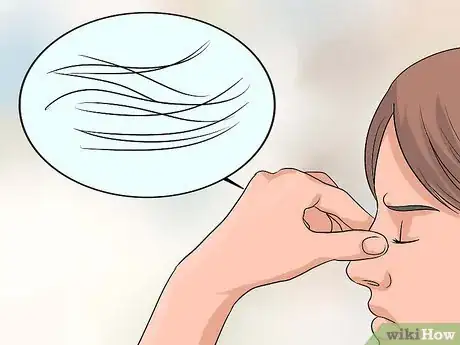





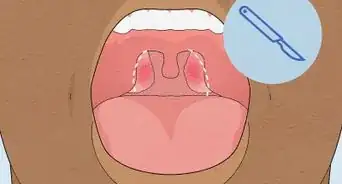




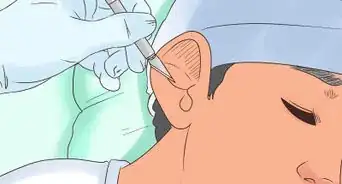

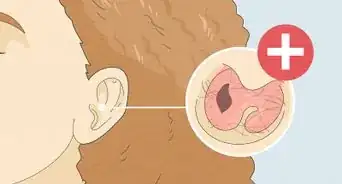











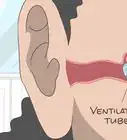
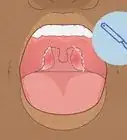




































Medical Disclaimer
The content of this article is not intended to be a substitute for professional medical advice, examination, diagnosis, or treatment. You should always contact your doctor or other qualified healthcare professional before starting, changing, or stopping any kind of health treatment.
Read More...